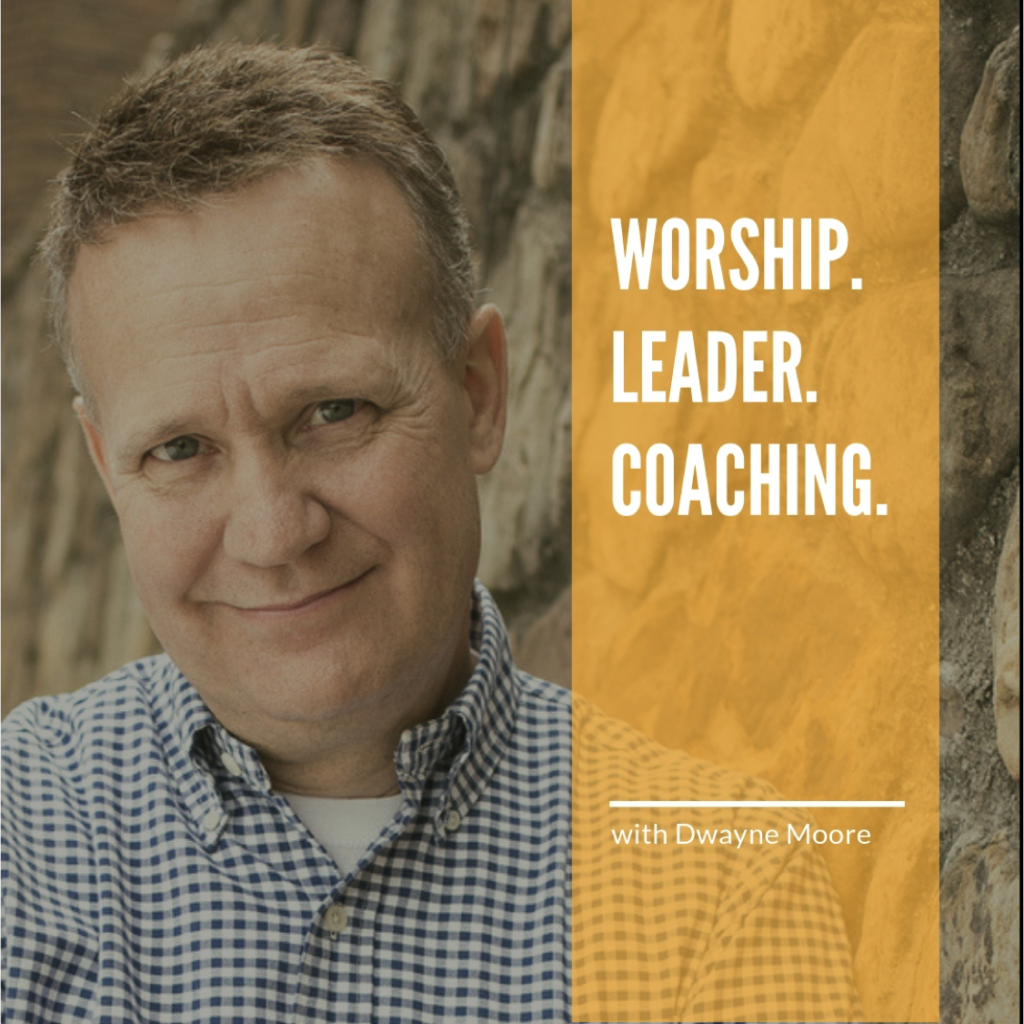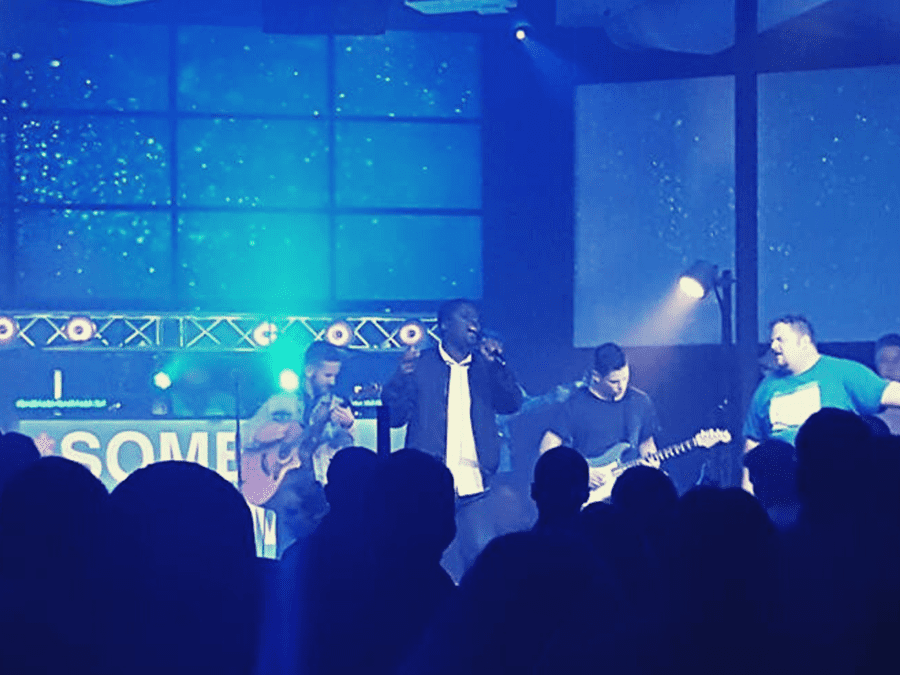
Songwriting for the Church Part 2
Recently during one of our LEGACY Coaching sessions, Dwayne sat down with Stephen Moore, lead singer for Carrollton, to discuss songwriting with the online students. Below is another part of that conversation. Go HERE to listen to Part 1 of this interview.
When you’re asking who you’re writing for, in that answer’s the congregation the other half of the responsibility is in translating and communicating. You want them to sing along but you also want them to understand, comprehend what they’re singing. Connecting an audience to your lyrics is everything, I think, in a congregational setting. It’s not even optional, I would argue.
Dwayne: I agree.
Stephen: If you’re writing songs for radio or if you’re looking at secular artists playing concerts, there are plenty of example of songs that don’t make a bit of sense. Have you heard the song, Come Together by the Beatles?
Dwayne: Yeah. “Come together right now over me.”
Stephen: Yeah, that is the only line in that whole song that makes any sense at all.
Dwayne: That makes any sense at all.
Stephen: But you ask anybody what that song is about and they’ll tell you it’s unity and all this stuff. None of the verses make a bit of sense in regards to that especially but anyway, with a congregation it is your responsibility to connect people with those lyrics and so you’ve got your central idea in the chorus as it almost always is. I’ve never seen anything otherwise. Your verses are built around the chorus so setting up the chorus to happen. The bridge could be reinforcing that idea or just an anthem out of what you’re singing but I think each section of that song is intentionally tailored toward taking the audience on this journey to get them to that central idea.
Dwayne: That’s good.
Stephen: So considering that, and I think stuff like what you did, Scott, is that it?
Dwayne: Yeah.
Stephen: Yeah, Scott, pauses before a word, little tiny things like that just make those words pop and emphasize those words in of themselves. That brings me to my second point of song dynamics.
Dwayne: Okay, define dynamics. What does that mean?
Energy
Stephen: It would be maybe the roller coaster of energy…
Dwayne: Energy.
Stephen: …in your song.
Dwayne: Could that include volume?
Stephen: Absolutely. Yeah, it could include volume in terms of arrangement, it could include how many instruments are playing when and where, it could involve words, wordage meaning you may have more words on your verse so it’s more rhythmic but you may have one statement in your chorus that just floats so it’s sustained, it’s sustained notes. You know what I mean?
Dwayne: Sets it apart.
Stephen: Totally, it sets it apart but … More words, more rhythmic melody means more energy typically and then … Trying to think of an example. Revelation song.
Dwayne: Yeah.
Stephen: “Holy, holy, holy. You are God Almighty.”
Dwayne: “God Almighty”, yup.
Stephen: This is a very floaty, easygoing, if they try to cram twice as many words into that then it would just-
Dwayne: Yeah, yeah, okay.
Dynamics
Stephen: But anyway, a lot can play into dynamics. I think writing with dynamics in mind are really important. At one point you had told me a good song should be able to stand alone with just you and an acoustic guitar and I think there’s a lot of good in that approach. I think some pop songs, today, which in turn are songs that are extremely popular, don’t necessarily fall in line with that.
Dwayne: That’s right, that’s right.
Stephen: Because the whole song hangs on the production value of the song.
Dwayne: That’s right, that’s right.
Stephen: But I do think if you have a song that can stand with just you and an acoustic guitar, both dynamically, everything else, it’s going to stand with a band. I think that is always…
Dwayne: We could take Scott’s song, which did great just him on an acoustic and even beef it up and make it even better maybe with a band but it’s still great by itself. So yeah, that’s right.
Stephen: Yeah, and so but what I do, I almost always just write on an acoustic guitar. Me and an acoustic guitar but I always try to think dynamics in mind as opposed to just playing, say a quarter, an eighth note rhythm throughout the song. I’m thinking, okay do I want to bring it down on the verse or maybe … There was one song, To Be Alive, this song that I wrote awhile back and actually recorded and I decided I wanted the verses to be everything in, all instruments in and then the chorus, it all drops out and it’s just a rhythm. It’s just the drums and some percussion stuff going. So it’s kind of flipped, it’s kind of inverted from the norm I think in regards to that.
Toying with different things like that, it lends interest to your songs and it also can emphasize certain things. I was telling you about the song, Hold You. That whole song is just kind of an extension on the idea, I always sit up with the Matthew 11 passage where Jesus says, “Come to me you who are weary and…
Dwayne: Heavy laden.
Stephen: …and heavy laden”, yeah, “And I’ll give you rest.” It’s just this idea of specifically, I say you know about that passage and then you know about all the times that we completely ignore that and just do our own thing so that song was coming from that place of basically just trying to do it myself and being reminded, be it through scripture, through someone else, “Hey, you should just lay it down and let go.” The song was called, Hold You. The idea is why don’t you let me hold you? Just fall…
Dwayne: I like the song.
Stephen: The words are fine. I don’t think anybody’s going to be able to sell me on the issues I have with it but anyway, in the bridge-
Dwayne: I think it’s a good song but anyway.
Stephen: Everybody else in the band likes it pretty well too but anyway, the bridge, first of all there’s a retard so it all slows down five BPM or so which is pretty…
Dwayne: That’s pretty significant.
Stephen: … significant. So it slows down, everything drops out and it’s just the acoustic guitar playing. It’s like the five, four, one progression or whatever it is and me singing over that. “You said come to me”, and the lyrics are, “You said come to me, weary, weak, find your rest for your restless soul.” I really wanted those lines to stand out because to me, that summarizes what this song is. It also ties it very intentionally into scripture, I think, and so I wanted people to pick up on that and to catch that and so we just took all the instrumentation away from it. We slowed it down so that lends it’s attention to it in of itself.
Dwayne: Yes, it does and that’s what you mean by dynamics. All that kind of thing.
Stephen: All that, yeah I think the energy of your song or lack there of can totally transform a song. There’s a song that we were working on recently that I hated to listen to. What’s the name of the song?
But anyway, the kick drum, it’s four to floor the whole freaking song and it gave me a headache and I put vocals down on it. Like I said, we record demos to anything we write just so we’ve got it so we can share it with our label or somebody else if they’re looking for a song for an album or whatever. I hated it. I hated the song. We sat back down with it, we took the kick drum out of the verses and took, I think, maybe one of the guitars out or something. It just made it sound more empty on the verses and it totally put this cool contrast in between the verses and the chorus so when the chorus kicked in …
The song, it’s kind of a party song in general, just the feel of it, and when the chorus kicked in the whole chorus just says, “Bring the house down”, and you believe it all of a sudden because it’s been set up well whereas if you’re just 90 miles an hour the whole song it can tend to give people a headache and they also just, people get tired of it…
Creativity
Dwayne: Let me interject something there, guys. This is getting really technical because this guy lives in this world all the time but how to bring this down just in your band, in your church. This morning, I’m going to give you an example. This morning I led this group at this church in songs. I’m doing it every day this week and what they’re used to, at this church, I know they are. They’re wonderful people but they’re used to just singing this old hymn style of you sing a verse and a chorus, another verse and a chorus, another verse and a chorus and everything sounds exactly the same on every verse and every chorus. The only differences are the words themselves but they all sing together, all sing in whatever they sing in parts and no dynamic changes.
That drives me crazy so even with an old hymn that they’re used to singing a certain way, it was, When We All Get to Heaven, if you guys know that. It’s an old hymn. If you’re in the Baptist tradition you might know it and the third verse says, “Let us then be true and faithful trusting, serving, every day”, and that’s such an important idea that I literally slowed … You said slowing it down. I literally slowed down the song because it’s so fast it’s easy to run by that stuff and I slowed it down to emphasize that and you can be creative within the songs you’re singing now even if you didn’t write it.
You can be creative and use this dynamic idea he’s talking about to bring home certain things you’re trying to emphasize.






Leave a Reply
You must be logged in to post a comment.